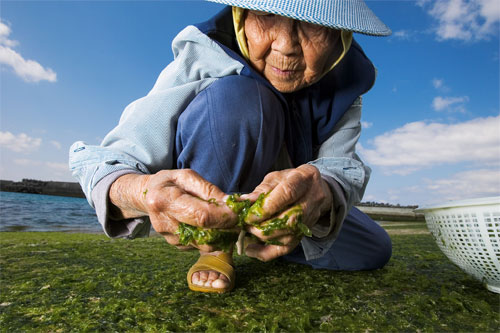Nine secrets of the world’s longest living people
What is the secret to longevity, and why do some people attain it while others don’t? Is it sheer luck, or are there some key factors at play here? Are we all born with the same potential to live a long and healthy life or is that determined solely by genetics?

Interestingly, it seems as though people living in specific regions of the world tend to live longer than those living elsewhere. So, what is it about these specific regions that offer people a chance to live a full life? This was the question that National Geographic explorer Dan Buettner wanted to answer.
Through his research, Buettner identified five geographic locations where people have been observed to live the longest. He has identified these regions as “Blue Zones,” and found that even though these zones differ widely geographically, the diets and lifestyles of their residents share much in common.
You don’t have to live in one of these areas to ensure longevity, however, and if you are looking to live a long and healthy life then you may want to consider the following observations.
What Are the Most Effective Ways to Achieve Longevity?
In Western society, the idea of growing older is not necessarily celebrated or anticipated. It is actually often feared, as we associate old age with chronic pain and disease. But it doesn’t have to be this way, and with some awareness and vision, we too can have a long and purposeful life despite our geographical location.
Dan Buettner reveals what he has discovered are the secrets to longevity and the habits and traits shared by those who live the longest. Some of them might shock you, but as Buettner says: “If you ask the average Westerner what the optimal formula for longevity is, they probably couldn’t tell you.” This is a pretty telling statement — many of us are simply unaware of the key lifestyle factors that contribute to health and vitality.
1. Slow Down and Deal With Stress
Common amongst those living in blue zones was effectively dealing with stress when it arises, and in many cases living lifestyles that do not cause a lot of excess stress in the first place. Taking time to slow things down and enjoy life was a common theme throughout Buettner’s studies.
2. Have a Purpose
Having a reason to get out of bed every day, especially for seniors, was essential. Simply put, finding something to do on a regular basis keeps us happy and helps us live longer.
3. Eat Less
Buettner observed the eating habits of various cultures in these regions, and all ate sparingly. The eating habits of the Okinawans specifically demonstrated an aversion to excess. They know that the feeling of fullness comes after the meal is completed so, rather than stuffing themselves until they feel full, they stop eating before they feel full, knowing the feeling will come after. They also eat off small plates and prepare small portions.
4. Eat a Variety of Foods and Lots of Plants
Common among all blue zones was the amount and variety of plant-based foods that were being consumed. Having a diet consisting of predominantly plant-based foods proves to be a key factor in longevity regardless of your geographical location.
5. Be Social
In America, elderly people are often put into care homes and lead very lonely and isolated lives. Something all of the blue zones have in common is a strong sense of community that includes the older people. Instead of shunned and forgotten, older people are celebrated and included.
6. Have Faith
A large percentage of those living in blue zones have faith. They believe in a higher purpose for life, be it religious or spiritual.
7. No alcohol
It seems this one was a bit of a toss up. People either enjoyed a glass of wine very rarely, or didn’t drink at all.
8. Move Naturally
People who live in blue zones tend to move a lot throughout the day, but they aren’t making a point to do it — it just comes naturally. Their daily activities include gardening, walking, and spending time outdoors.
9. Put Loved Ones First
People in blue zones tend to stay close to their family members. Parents and grandparents play a big role in the lives of their children and they stay connected and close by, remaining an integral part of each other’s lives.
yogaesoteric
November 3, 2019


